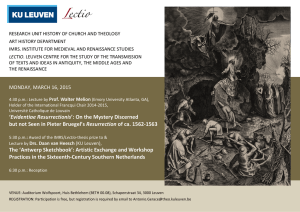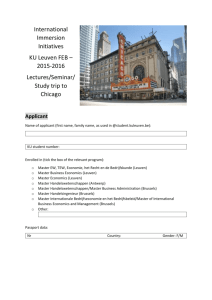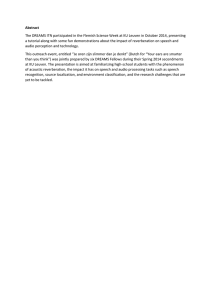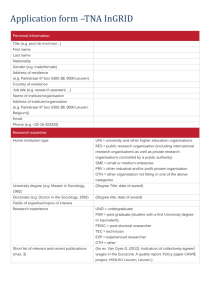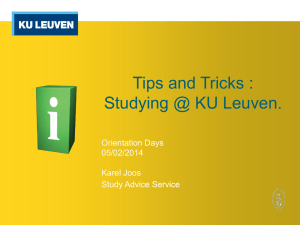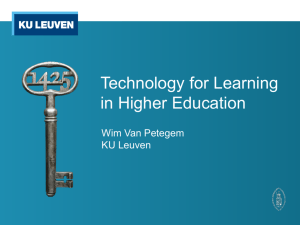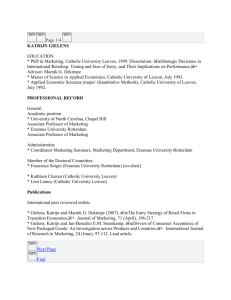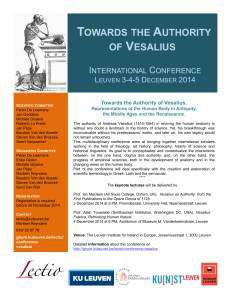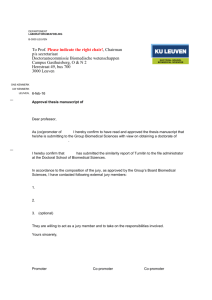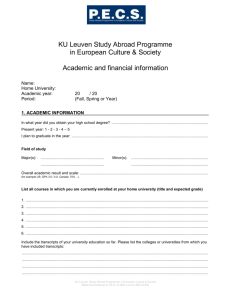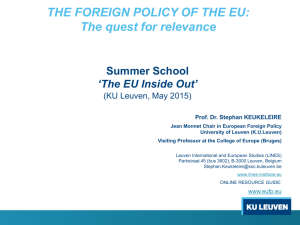Profile
advertisement
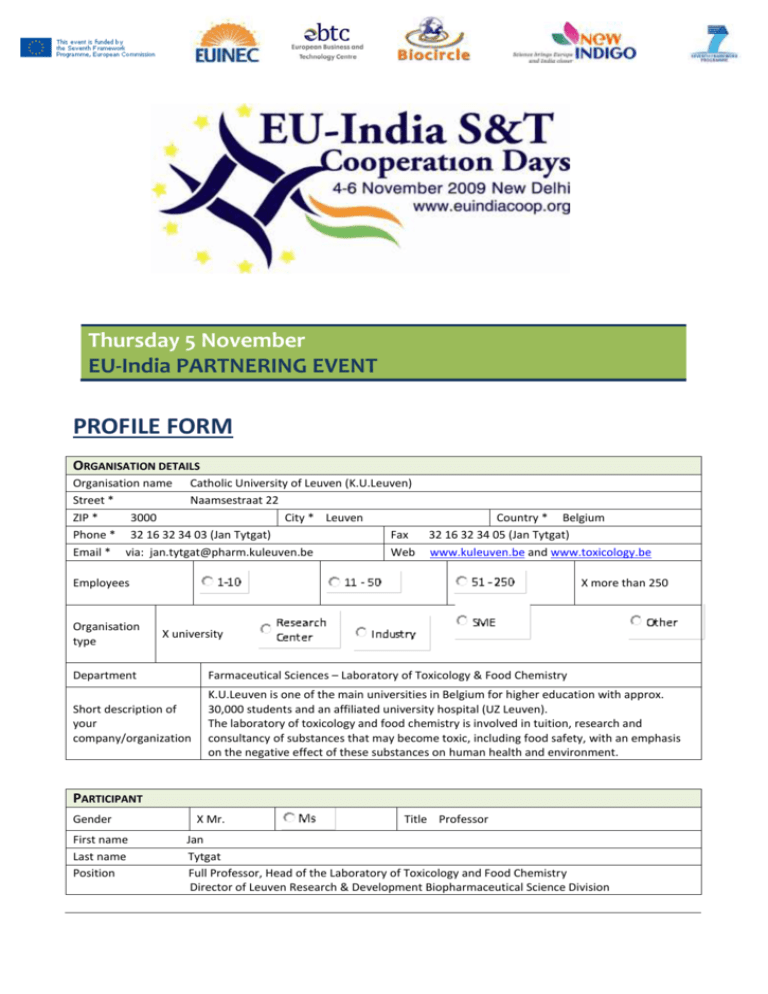
Thursday 5 November EU-India PARTNERING EVENT PROFILE FORM ORGANISATION DETAILS Organisation name Catholic University of Leuven (K.U.Leuven) Street * Naamsestraat 22 ZIP * 3000 City * Leuven Phone * 32 16 32 34 03 (Jan Tytgat) Fax Email * via: jan.tytgat@pharm.kuleuven.be Web Country * Belgium 32 16 32 34 05 (Jan Tytgat) www.kuleuven.be and www.toxicology.be Employees Organisation type X more than 250 X university Department Farmaceutical Sciences – Laboratory of Toxicology & Food Chemistry Short description of your company/organization K.U.Leuven is one of the main universities in Belgium for higher education with approx. 30,000 students and an affiliated university hospital (UZ Leuven). The laboratory of toxicology and food chemistry is involved in tuition, research and consultancy of substances that may become toxic, including food safety, with an emphasis on the negative effect of these substances on human health and environment. PARTICIPANT Gender First name Last name Position X Mr. Title Professor Jan Tytgat Full Professor, Head of the Laboratory of Toxicology and Food Chemistry Director of Leuven Research & Development Biopharmaceutical Science Division PARTNERSHIP PROPOSAL EU-India partnering event session participation: X Life sciences, biotechnology and biochemistry for sustainable X Health Areas of activity (Free keywords) PROJECT drug discovery, biodiversity, lead compounds, screening tools, biotechnology DESCRIPTION Title of your research project in one sentence Short description of project Description of expertise offered Description of requested partner expertise Exploring India’s traditional biodiversity for state-of-the-art drug discovery Numerous examples of drugs currently being used in medicine have demonstrated the innovative potential of natural products and their impact on drug discovery. By exploring biodiversity and discovering interesting substances called ‘lead compounds’, nature has indeed provided mankind with new therapeutic approaches and an unraveling of important biochemical or physiological pathways. The proposed project wants to explore India’s traditional biodiversity, particularly in the field of marine organisms, in order to discover novel generations of drugs (e.g. analgesics, antibiotics, immunosuppressants) that will benefit the entire population worldwide. As such, this project also contains an important element of valorization. State-of-the-art biotechnological, analytical approaches & techniques (chromatographic techniques coupled to mass spectrometry, recombinant synthesis and purification of peptides, cDNA and genomic cloning of organisms), combined with a semi-high throughput bioassay screening on a wide array of membrane-bound target (i.e. electrophysiological techniques investigating ion channels and receptors) Knowledge in biodiversity and its traditional medical use, plus skills in collecting the (start) material.
